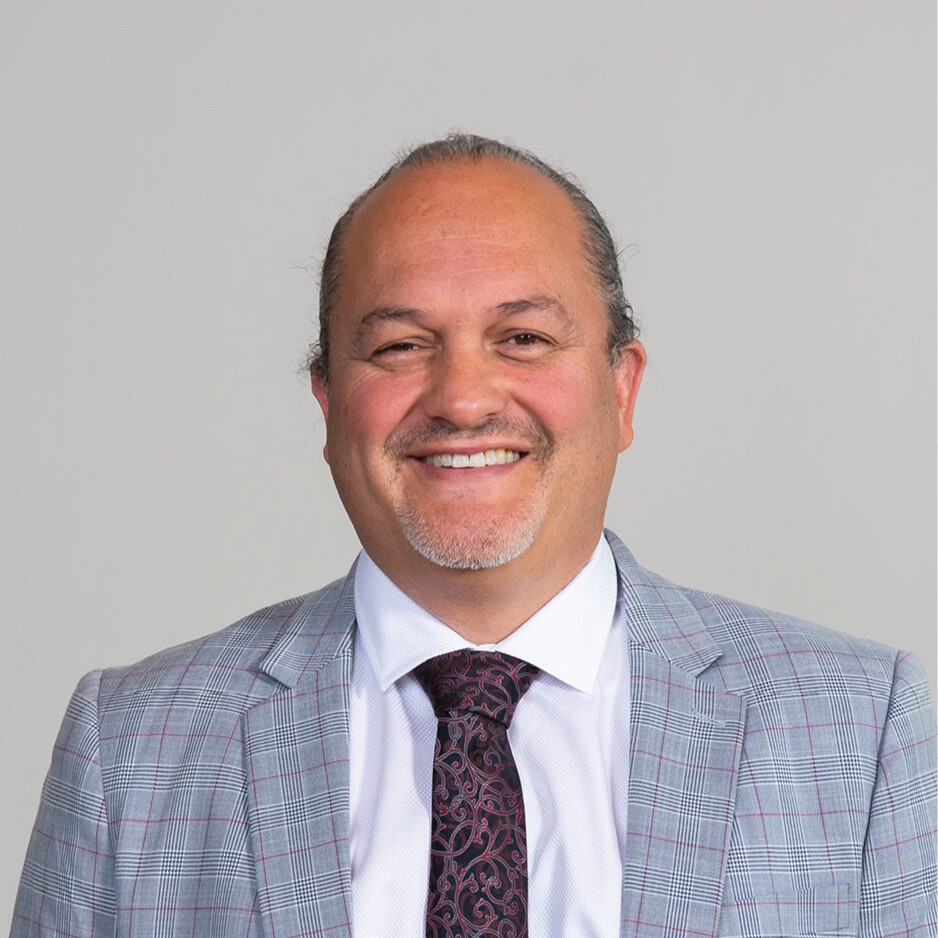
Dr Jamie Ataria
Dr. Ataria advocates for the integration of mātauranga Māori and contemporary science in freshwater biosecurity, empowering Māori-led solutions and fostering long-term partnerships to protect Aotearoa’s ecosystems.
Introduction:
Dr James Ataria is an Ecotoxicologist at the Cawthron Institute, recognised for his expertise in integrating mātauranga Māori with scientific research. With over 20 years of experience, his work focuses on addressing community-based environmental challenges, particularly in assessing the impact of contaminants on culturally significant species and freshwater ecosystems in Aotearoa.
Dr Ataria is committed to fostering mutual understanding between Māori communities and key organisations, aiming to improve resource management and biosecurity. His approach, which combines traditional Māori knowledge with contemporary science, promotes collaboration and empowers decision-making, offering innovative, practical solutions to safeguard freshwater environments and enhance biosecurity efforts.
Dr Ataria’s Wisdom:
- Mātauranga Māori and contemporary solutions: Dr Ataria highlights the importance of incorporating mātauranga Māori into contemporary freshwater biosecurity solutions. He says that indigenous knowledge, particularly around rongoā Māori (traditional healing), is critical to addressing issues like pest management. Ataria explains that the process of using local knowledge systems allows for unique solutions, such as a rongoā-based approach. He describes how “looking through our own whakapapa and understanding the connections in the Te Ao Māori worldview” enables communities to find innovative ways to manage pest species. “You find solutions. You can find a solution if you look."
- Holistic approach to biosecurity: For Dr Ataria, pest management is not solely about eradicating pests but is also about re-engaging Māori communities with their cultural practices and environments. He believes that the process of finding solutions must include reconnecting whānau with the ngahere, their language, and their cultural protocols. “It’s about them getting back to their cultural processes. It’s about them getting actually back into the ngahere.”
- Recognition of Indigenous knowledge as legitimate: Dr Ataria stresses the untapped value of mātauranga Māori and the knowledge of mana whenua, which he believes is often overlooked due to a lack of recognition from mainstream scientific frameworks. He points out that generations of cumulative experience and lived knowledge within Māori communities are seldom credited with the same legitimacy as scientific knowledge. However, this knowledge is invaluable for freshwater biosecurity and environmental management. " There are real possibilities in the knowledge of mana whenua.' You often have years and generations of cumulative experience... But people don’t credit or give a level of credit to that knowledge, as legitimate, or believe that it lacks the rationale and rigour that (mainstream) science does.”
- Need for greater integration between science and mātauranga Māori: Dr Ataria envisions a future where science and mātauranga Māori work together as equals. He highlights the potential for innovation when these two knowledge systems collaborate, especially in addressing issues like freshwater pest management. “The most exciting thing is where you have a marriage of science and mātauranga coming together as equals… Creating those places and spaces where that can occur."
- Indigenous leadership in global knowledge systems: Reflecting on a conversation held with a First Nations particle physicist, Dr Ataria believes that significant advancements in knowledge could come from an indigenous leader trained in both traditional knowledge and modern science. This reflects his hope for indigenous knowledge to contribute to global scientific breakthroughs. "It will be an indigenous person… Also trained in physics… htis coming together of these two knowledge systems to create new knowledge."
- Challenges in integrating Indigenous knowledge: One of the main challenges Dr Ataria identifies is the lack of trust and funding available for Māori-driven solutions. He points out the restrictive nature of current funding models, which hinder Māori communities from fairly participating in pest management efforts. He advocates for Māori to be trusted to lead these initiatives and stresses the importance of having appropriate knowledge protection systems in place. “There are still issues around Māori accessing funding...the models that Funders use to provide funding are just really restrictive and inhibitive of Māori actually participating fairly.”
- Importance of building long-term relationships: He emphasises the significance of long-term, trusting relationships between agencies like the Department of Conservation and Māori communities. He critiques the tendency of agencies to engage in "short-term" partnerships, which do not foster meaningful or sustainable outcomes. “Māori aren’t gonna suddenly sidle up to you just for a one-night stand. This is a ‘we’re getting married here and we’re gonna have mokopuna.’ It’s long-term, right?” Relationships are key and to Māori communities they are long term and enduring.
Dr Ataria Recommends:
- Empower Māori-led solutions: Allow mana whenua to lead biosecurity efforts by providing them with necessary resources and decision-making authority, recognising the value of their intergenerational knowledge.
- Acknowledge Māori knowledge systems: Adopt a dual approach that values both mātauranga Māori and science, integrating Māori cultural protocols like tikanga, karakia, and whakapapa into biosecurity practices.
- Holistic ecosystem management: Focus on interconnected ecosystems in pest management, drawing on the Māori view of whanaungatanga between land, water, and forests.
- Build long-term relationships: Develop lasting, reciprocal partnerships with Māori communities, rooted in respect and trust beyond short-term engagements.
- Simplify Māori access to funding: Reform funding models to be more flexible and accessible for Māori communities, allowing for greater participation in biosecurity projects.
- Integrate mātauranga Māori with science: Encourage collaborative spaces where mātauranga Māori and science work together to co-develop innovative solutions to biosecurity challenges.
In Summary:
Dr Ataria highlights the importance of integrating mātauranga Māori with contemporary science to enhance freshwater pest management. There is a strong need to empower mana whenua, recognise Māori knowledge systems, and foster long-term, trust-based relationships between Māori communities and agencies like DOC. To move forward, DOC should consider providing greater autonomy and resources to Māori-led initiatives, reforming restrictive funding models, and creating collaborative spaces where indigenous knowledge and scientific methods work together to develop innovative solutions for biosecurity challenges.
Photo © MB Century


.png)



.png)
